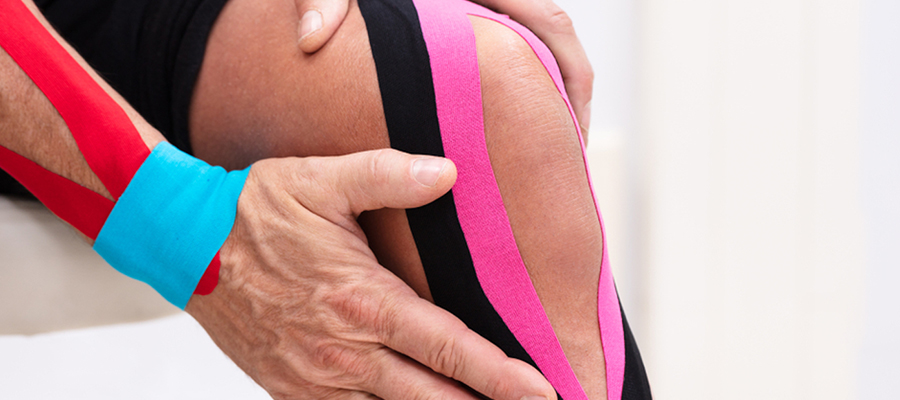
Estimated reading time: 4 minutes and 23 seconds
Muscle Rupture Treatment
Comprehensive Muscle Rupture Treatment at Aktif International Hospitals
Muscle ruptures can occur due to sudden trauma, overexertion, or repetitive stress, leading to partial or complete tearing of muscle fibers. These injuries can cause pain, swelling, and limited mobility, impacting daily activities and athletic performance. At Aktif International Hospitals, we offer comprehensive treatment for muscle ruptures provided by experienced orthopedic surgeons and sports medicine specialists. Our goal is to help patients recover from muscle ruptures and regain strength, flexibility, and function to return to their normal activities as quickly and safely as possible.
Frequently Asked Questions
What is a muscle rupture, and what are its common causes?
A muscle rupture, also known as a muscle tear or strain, occurs when the muscle fibers are stretched beyond their capacity, leading to partial or complete tearing of the muscle tissue. Common causes of muscle ruptures may include:
- Sudden trauma: Muscle ruptures can occur as a result of sudden impact, falls, or direct blows to the muscle.
- Overexertion: Engaging in strenuous physical activity or lifting heavy objects without proper warm-up or conditioning can increase the risk of muscle ruptures.
- Repetitive stress: Performing repetitive motions or activities that place excessive strain on the muscles, such as running, jumping, or throwing, can lead to muscle overuse and subsequent rupture.
What are the symptoms of a muscle rupture?
The symptoms of a muscle rupture may vary depending on the severity and location of the injury but commonly include:
- Pain: Sharp or stabbing pain at the site of the injury, which may worsen with movement or activity.
- Swelling: Localized swelling or bruising around the affected muscle.
- Weakness: Decreased strength or ability to use the affected muscle, resulting in difficulty performing certain movements or activities.
- Limited range of motion: Stiffness, tightness, or decreased flexibility in the affected muscle or joint.
- Visible deformity: In severe cases, a visible deformity or bulge may be present at the site of the muscle rupture.
How is a muscle rupture diagnosed, and what is the recommended treatment?
A muscle rupture is typically diagnosed based on a physical examination, medical history, and imaging tests, such as ultrasound, magnetic resonance imaging (MRI), or computed tomography (CT) scan, to assess the extent and severity of the injury.
The treatment for a muscle rupture may vary depending on the location, severity, and individual needs of the patient but commonly includes:
- Rest and immobilization: Resting the affected muscle and avoiding activities that aggravate symptoms can help promote healing and prevent further injury. Immobilization with a brace, splint, or sling may be recommended to protect the injured muscle and facilitate recovery.
- Ice therapy: Applying ice packs or cold compresses to the injured area can help reduce pain, swelling, and inflammation during the acute phase of injury.
- Compression: Wrapping the injured muscle with a compression bandage can help reduce swelling and provide support during the healing process.
- Elevation: Elevating the injured limb above the level of the heart can help reduce swelling and promote circulation to the affected area.
- Physical therapy: Once the acute symptoms have subsided, a structured physical therapy program may be prescribed to restore strength, flexibility, and function to the injured muscle. Physical therapy exercises may include stretching, strengthening, and range of motion exercises tailored to the individual’s specific needs and goals.
In some cases, severe muscle ruptures may require surgical intervention to repair the torn muscle tissue and restore function. Surgical treatment options may include:
- Muscle repair: Surgical repair of the torn muscle fibers may be performed to realign and suture the muscle ends back together, especially in cases of complete muscle ruptures.
- Tendon transfer: In cases where the muscle has detached from its tendon attachment, a tendon transfer procedure may be performed to reattach the tendon to a nearby muscle or bone to restore function.
Why choose Aktif International Hospitals for muscle rupture treatment?
Aktif International Hospitals is dedicated to providing personalized and compassionate care for individuals with muscle ruptures. Our team of experienced orthopedic surgeons, sports medicine specialists, and rehabilitation professionals is committed to helping patients recover from muscle injuries and return to their active lifestyles safely and effectively. We offer state-of-the-art diagnostic techniques, advanced treatment options, and comprehensive rehabilitation services to optimize patient outcomes and facilitate full recovery from muscle ruptures.
Schedule Your Consultation at Aktif International Hospitals
If you have experienced a muscle rupture or are concerned about a muscle injury, don’t hesitate to seek medical attention. Contact Aktif International Hospitals to schedule a consultation with our experienced orthopedic team. We are here to provide the support, guidance, and treatment options you need to recover from a muscle rupture and regain strength, mobility, and function. Your health and well-being are our top priorities, and we are committed to helping you achieve a full and successful recovery from muscle injuries.
Author: Hasan Kara


 TR
TR